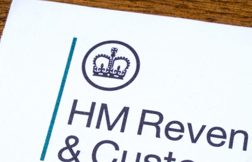The Chancellor’s Spring Budget is due on 6 March and it’s Jeremy Hunt’s job to set out the government’s plans for the economy, both in terms of public spending and the taxation needed to fund it. Added spice and expectation precedes the 2024 Budget with a general election likely to be held in November. The Chancellor always has many voices whispering in his ear in the run up to a Budget. From backbench MPs looking for tax giveaways, industry and business seeking stimulation of the economy, to the financial gurus cautioning prudence and a rebuild of the economy. But what can the contracting industry expect or at least hope for as a best outcome from what may be the last (or last but one?) of a Conservative government?
The industry is waiting for the outcome of the umbrella consultation which may bring greater regulation in the sector. However, given the volume of responses to the consultation last August we think it’s unlikely anything in the form of draft legislation will be announced in this Budget. On the IR35 front, the tax offset rules come into effect from 6 April which may encourage the greater use of contractors and perhaps a review by some players in the marketplace to look again at blanket bans. Nothing in the forthcoming Budget is likely to address the many issues and concerns around IR35 legislation or to rationalise the approach to employment status. Let’s look at the wider general financial and taxation options the Chancellor may be juggling with and the chances of them appearing on 6 March:
A 2p Cut In The Basic Rate Of Income Tax
This would be a welcome surprise. The Chancellor’s own view that such a cut would stimulate growth has been tempered by advice reaching him from influential bodies like the Institute for Fiscal Studies, that the finance needed to deliver public services would be adversely affected.
Likelihood of announcement - score 5/10
Abolition of Inheritance Tax (IHT)
There has been a long-running campaign to get this tax abolished. Only 4% of UK estates paid any IHT in 2020/21. This ‘death tax’ is sometimes perceived as affecting only the wealthy but with soaring house prices, more estates are likely to reach the threshold of liability. Abolition is unlikely but some measure to reduce the tax rate (40%) or an increase in the threshold is more likely.
Likelihood of abolition announcement - score 1/10
Likelihood of rate/threshold change - score 4/10
Increase in the Personal Tax Allowance
The Personal Allowance has been frozen at £12,570 until 2028. As wages and salaries rise, having a fixed Personal Allowance produces ‘fiscal drag’. This brings more people into the tax net and those paying basic rate tax more quickly into paying higher rate tax as their income rises. A modest increase in the allowance may be a vote winner but could prove expensive for the Exchequer.
Likelihood of announcement - score 6/10
Increase in the VAT threshold
VAT registration is required of businesses with an annual turnover of £85k. An increase in this threshold would keep more small businesses out of the net enabling maintenance of margins and less in the way of administrative burden. The existing threshold has been in force since 2017 and an increase would not be a headline change.
Likelihood of announcement - score 2/10
Fuel Duty freeze extension
Fuel duty is a major revenue source for the UK government and normally rises annually in line with an escalator linked to inflation. With an ongoing cost of living crisis, freezing the duty is seen as being a popular measure.
Likelihood of announcement score - score 9/10
Child Benefit clawback thresholds
The inherent unfairness involved in this charge has been highlighted on the Martin Lewis Money Programme and acknowledged by the Chancellor himself. Increasing the current income threshold of £50k is an option. Dealing with the inequity in the situation where a household with two incomes of just under £50k each can escape the charge whilst a single member of a household with an income of just over £50k is hit with the charge. The threshold has been unchanged since the introduction of the charge in 2013.
Likelihood of announcement - score 7/10
There is no doubt that in an election year the Chancellor of the Exchequer is required to display the skills of both a juggler and a conjurer! Notwithstanding, his announcements on 6 March should provide us with a clear route map for the government’s financial and economic direction.








